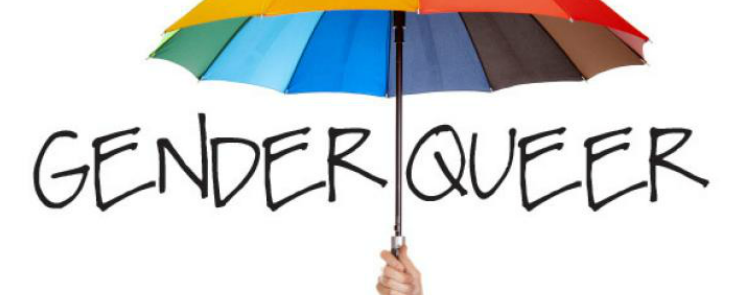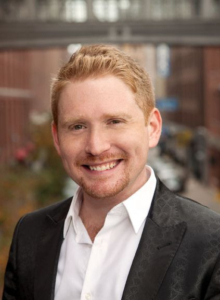Dear Leon: How Can I Develop a Positive Body Image As a Gender Non-Conforming Person?
Leon Silvers is a psychotherapist, founder, and director of Silvers Psychotherapy, a group therapy practice in NYC. He specializes in working with clients with eating disorders, substance abuse, trauma, and LGBT issues. He has worked in various clinics and agencies providing psychodynamic psychotherapy for adults and adolescents; working in outpatient substance abuse; in crisis intervention for survivors of sexual assault, domestic violence, hate crimes, and HIV-related violence; and in non-profit HIV/AIDS service organizations.
Leon is trained in EMDR and is a New York State Certified Rape Crisis Counselor. He serves as the Clinical Director of Identity House, a non-profit LGBT service organization. He has also presented and published on a variety of topics including eating disorders, domestic/intimate partner violence, immigration and acculturation, LGBTQ issues, stress management, and gender. Leon graduated from New York University with a Master’s degree in Counseling for Mental Health and Wellness. He earned his Bachelor’s of Arts in Psychology, Summa Cum Laude, from Georgia State University.
How can I develop a more positive body image as a gender non-conforming person?
In our society, we are assigned male or female at birth and are expected to behave in a way that aligns with that assignment. In reality, many people stray from the gender binary construct and fit in a broader gender continuum. We alternate between so-called “masculine” and “feminine” behaviors and characteristics. Being non-binary or genderqueer means that your gender identity is not exclusively male or female.
Social constructs, like the idea that men prefer blue and women prefer pink, can be limiting and unhelpful. They can make us feel bad about ourselves because we feel that we do not fit in. It is important to recognize the origins of our inner struggles related to gender identity. They tend to be put upon us by various outside forces. Our families, governments, religions, workplaces, schools, and other societal institutions often hold rigid views on gender and gender expression, and they play a large part in how we feel about ourselves.
Many institutions instill and maintain the gender binary and forcibly reject any notions to the contrary. For instance, if you think about your family: What are their views on gender and how have those views impacted how you explore your own gender? Have you ever heard a family member make negative comments about transgender people? These experiences can leave you feeling discouraged to explore your gender identity. The views of larger institutions can have an impact as well. Religious institutions can have strict tenets related to gender, and straying from these can instill feelings of guilt and shame. Having an awareness that social constructs instilled by institutions big and small can impact your feelings and identity can be a helpful step in starting to develop a more positive body image.
Another part of learning to develop a more positive body image as a gender nonconforming person is allowing yourself to explore ways of living in your gender in various spaces. Experimenting with how you dress, wear makeup, or style your hair is great way to express yourself. Similarly, trying activities you haven’t tried before due to the gender binary can help you find new interests. You can also try taking on a different name and pronouns that you feel better align with your identity. Allowing yourself to explore your gender can positively impact your perception of your body and identity.
Expressing your gender can be done in different spaces depending on your level of comfort. You can express your gender privately or in the company of close friends first if you’re not ready to do so in public. Social media can also be a great resource for expressing your gender or connecting with other gender nonconforming people. There are private groups on Facebook, Meetup, or other social media forums to join and connect with others. Hashtags like #genderqueer, #nonbinary, and #LGBT can also show you gender non-conforming content. You can also look into joining groups in your area; LGBT centers and support groups for queer people can help you find likeminded people and provide you a community to join.
Building a supportive community is one of the most helpful tools in starting to work through body image issues. With eating disorders in general, we tend to restrict our interpersonal relationships and emotional vulnerability. Connecting with others can be helpful in recovery from all aspects of an eating disorder, and social and emotional support can help us continue to recover. It is important for gender non-conforming people to remember that they are not alone.
With exploration and support, gender non-conforming people can challenge the socially-constructed gender binary and begin to develop a more positive body image of themselves.
Header image: Holly Allen, ThinkStock





